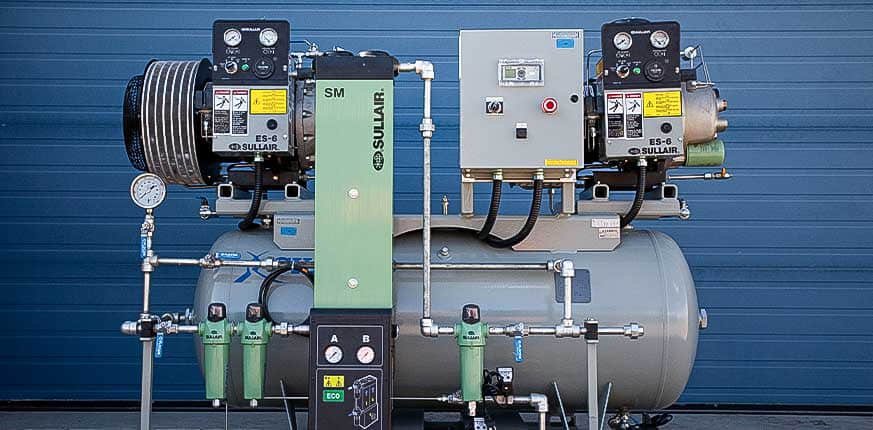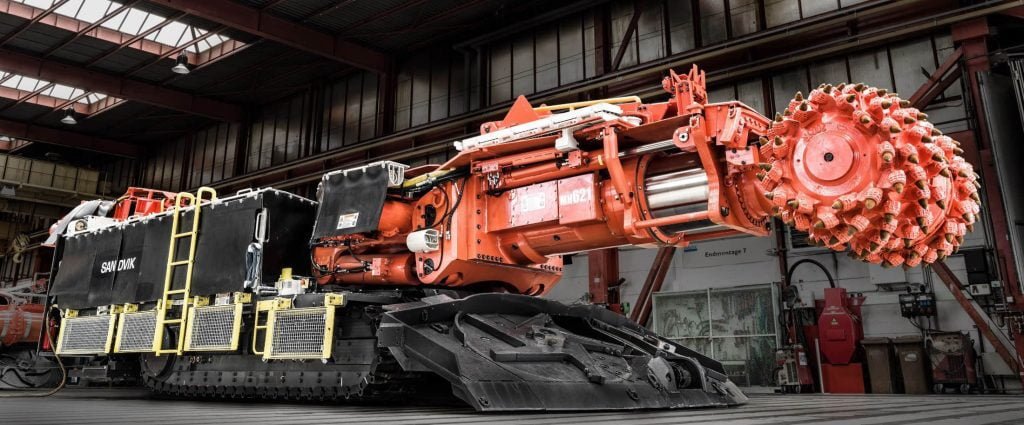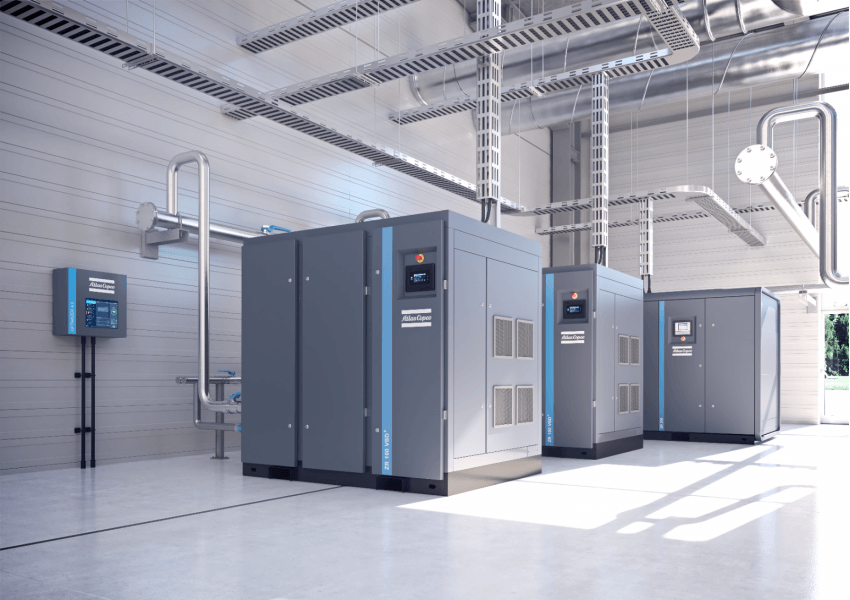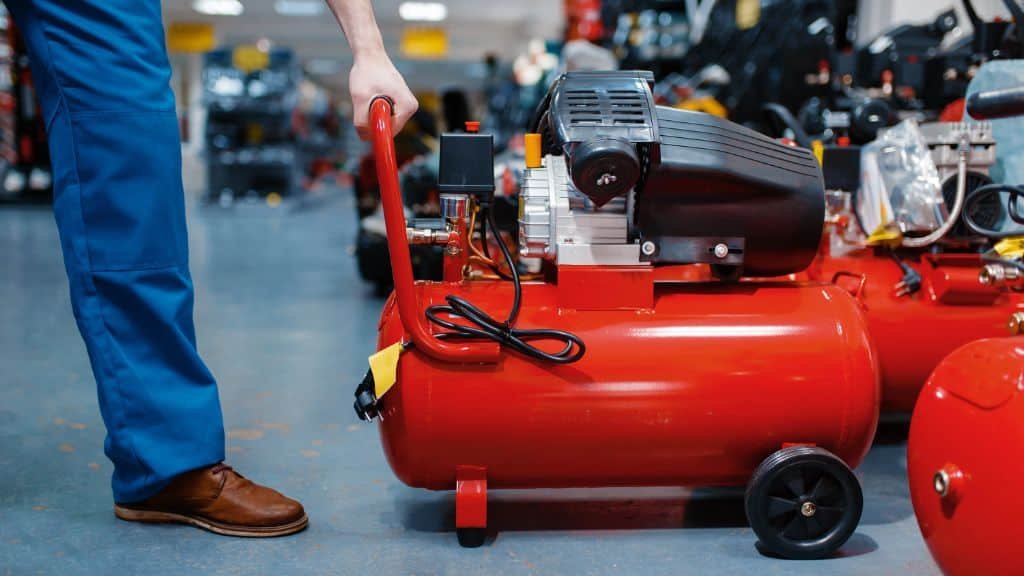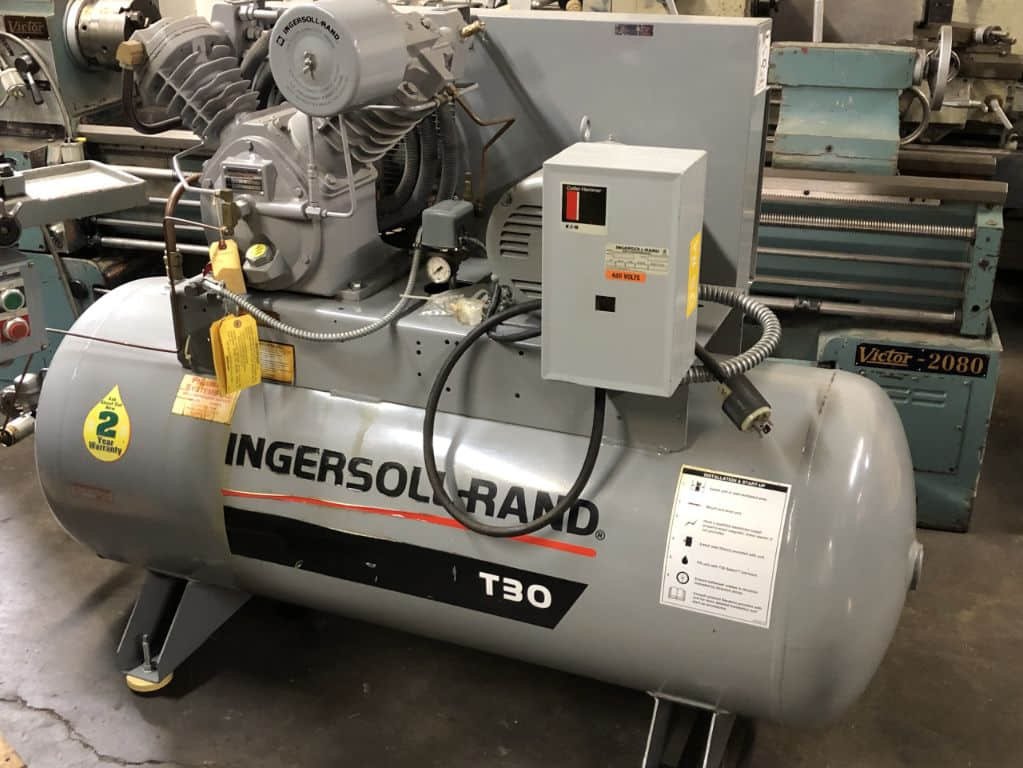Industrial air compressors have been around for more than 100 years and have undergone significant innovation during this time. The main function of any compressor is to increase the air pressure and decrease the volume of the gas. While the function remains the same across different types of compressors, the method of achieving this varies. Understanding these differences is crucial when deciding which compressor best suits your needs.
Types of Compressors
When choosing an air compressor for industrial use, you have many specifications to evaluate. For instance, if you’re considering a reciprocating compressor, you can choose between single-stage and two-stage compressors.
- Single-stage compressors draw in air and press it to its final pressure in a single stroke. They are ideal for situations requiring air pressure up to 150 psi and typically have a higher Cubic Feet per Minute (CFM) rating than two-stage compressors.
- Two-stage compressors use two strokes to compress air, enabling them to generate much higher pressures. They are the go-to choice when pressures above 150 psi are needed.
Key Considerations
When buying an air compressor, consider the following:
- What is the minimum expected operating pressure from the compressor?
- What are your CFM requirements?
- Do you require a portable compressor or a stationary one?
- What should be the size of the receiver tank?
Answering these questions will guide you towards making a better decision regarding your purchase. It’s also recommended to carefully examine the individual specifications and functions of compressors before making your final decision.
Conclusion
Choosing the right industrial air compressor requires careful consideration of various factors. By understanding the differences between compressor types and considering your specific needs, you can find the compressor that’s right for you.
FAQs
Q1: What are the differences between single-stage and two-stage compressors?
A: Single-stage compressors compress air in one stroke and are ideal for pressures up to 150 psi. Two-stage compressors use two strokes and can generate much higher pressures, making them suitable for pressures above 150 psi.
Q2: What factors should I consider when buying an industrial air compressor?
A: Consider the minimum expected operating pressure, your CFM requirements, whether you need a portable or stationary compressor, and the size of the receiver tank.
Q3: Why is it important to examine the individual specifications and functions of compressors?
A: Examining the specifications and functions helps you understand the compressor’s capabilities and whether it meets your specific needs.
